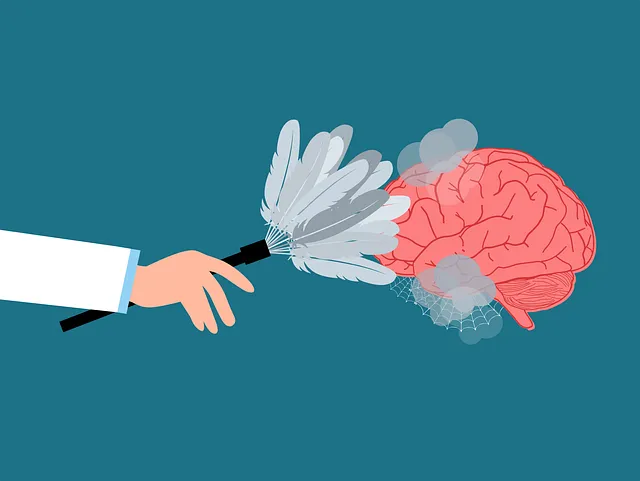Northglenn's Kaiser provides innovative inpatient mental health care that combines traditional therapy with positive thinking exercises like gratitude journaling, affirmations, and cognitive reframing. This holistic approach empowers individuals to build inner strength, enhance resilience, and effectively manage stress and anxiety. As demonstrated through Northglenn's personal experience and advocacy on the Mental Wellness Podcast Series, Kaiser's services offer transformative support for burnout and trauma victims, promoting positive thinking patterns and improved mental well-being.
“Unleash the power of positivity with our comprehensive guide on Positive Thinking Exercises (PTEs). This article explores strategies to enhance well-being and mental resilience. We delve into the clinical application of PTEs, highlighting Kaiser’s successful approach in treating patients.
Discover how Northglenn’s experience with inpatient mental health care has transformed lives through these innovative techniques. Learn why integrating positive thinking can be a game-changer for healthcare, offering lasting benefits for folks navigating challenging conditions.”
- Understanding Positive Thinking Exercises: A Comprehensive Guide
- Implementing Positive Thinking in a Clinical Setting: Kaiser's Approach
- Success Stories: Northglenn's Experience with Inpatient Mental Health Care
Understanding Positive Thinking Exercises: A Comprehensive Guide

Positive thinking exercises are a powerful tool for cultivating mental well-being and resilience. These practices aim to shift one’s mindset from negative or anxious thoughts to more optimistic and empowering perspectives. Northglenn’s Kaiser, for instance, offers inpatient mental health services, highlighting the growing recognition of these techniques in professional healthcare settings. By incorporating daily positive thinking exercises, individuals can enhance their ability to cope with stress, anxiety, and even challenging life circumstances.
The concept involves various strategies such as gratitude practices, affirmations, and cognitive reframing. For instance, starting each day with a list of gratitudes helps focus on the abundance in one’s life, fostering a sense of inner strength development. Mental health professionals can integrate risk management planning by teaching clients these techniques to mitigate stress reduction methods, especially during times of crisis. This holistic approach ensures individuals have tools to navigate their mental health journeys effectively.
Implementing Positive Thinking in a Clinical Setting: Kaiser's Approach

In a clinical setting like Northglenn’s Kaiser, integrating positive thinking exercises can significantly enhance patient outcomes. Kaiser’s approach to mental health care emphasizes a holistic view of healing, where Positive Thinking serves as a powerful tool alongside traditional therapeutic methods. By incorporating practices such as gratitude journaling and cognitive reframing, mental wellness coaching programs are developed to empower patients with skills to navigate stress and adversity more effectively.
This strategy is not just about changing one’s mindset; it involves a structured Risk Assessment for Mental Health Professionals to tailor interventions for individual needs. Through consistent implementation, Kaiser’s inpatient mental health services create an environment conducive to fostering mental wellness, ensuring patients leave with enhanced coping mechanisms and a brighter outlook on life.
Success Stories: Northglenn's Experience with Inpatient Mental Health Care

Northglenn’s journey with Kaiser’s inpatient mental health care is a testament to the transformative power of specialized support. Suffering from burnout and needing intensive trauma support, Northglenn found a sanctuary within the walls of the facility. The program offered a comprehensive approach to mental wellness, combining individual therapy, group discussions, and creative outlets like art therapy. This holistic treatment enabled Northglenn to process their experiences, regain control, and cultivate positive thinking patterns.
The experience at Kaiser was life-changing, as evidenced by Northglenn’s continued focus on mental wellness post-discharge. They actively engage in the local Mental Wellness Podcast Series Production, sharing their story to inspire others facing similar challenges. Through their advocacy, they contribute to building a supportive community that prioritizes burnout prevention and trauma support services, ensuring individuals like them receive the comprehensive care they deserve.
Positive thinking exercises, as explored through Kaiser’s clinical approach and illustrated by Northglenn’s successful implementation in inpatient mental health care, offer a powerful tool for enhancing well-being. By integrating these practices, professionals can foster a sense of optimism and resilience among patients. The case study from Northglenn demonstrates the potential for positive thinking to revolutionize mental healthcare, creating a more hopeful and supportive environment that benefits individuals on their journey towards recovery.






